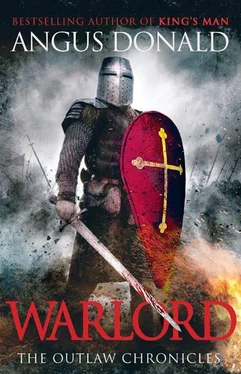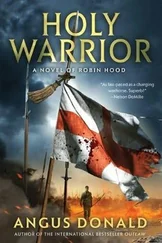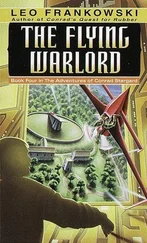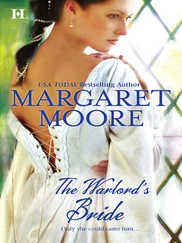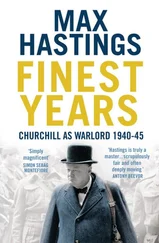Angus Donald - Warlord
Здесь есть возможность читать онлайн «Angus Donald - Warlord» весь текст электронной книги совершенно бесплатно (целиком полную версию без сокращений). В некоторых случаях можно слушать аудио, скачать через торрент в формате fb2 и присутствует краткое содержание. Жанр: Исторические приключения, на английском языке. Описание произведения, (предисловие) а так же отзывы посетителей доступны на портале библиотеки ЛибКат.
- Название:Warlord
- Автор:
- Жанр:
- Год:неизвестен
- ISBN:нет данных
- Рейтинг книги:3 / 5. Голосов: 1
-
Избранное:Добавить в избранное
- Отзывы:
-
Ваша оценка:
- 60
- 1
- 2
- 3
- 4
- 5
Warlord: краткое содержание, описание и аннотация
Предлагаем к чтению аннотацию, описание, краткое содержание или предисловие (зависит от того, что написал сам автор книги «Warlord»). Если вы не нашли необходимую информацию о книге — напишите в комментариях, мы постараемся отыскать её.
Warlord — читать онлайн бесплатно полную книгу (весь текст) целиком
Ниже представлен текст книги, разбитый по страницам. Система сохранения места последней прочитанной страницы, позволяет с удобством читать онлайн бесплатно книгу «Warlord», без необходимости каждый раз заново искать на чём Вы остановились. Поставьте закладку, и сможете в любой момент перейти на страницу, на которой закончили чтение.
Интервал:
Закладка:
‘My son, your countenance seems to me to have a very familiar aspect. May I make so bold as to ask, have we met before?’
‘No, Father,’ I said. ‘We have not met before this day. But I heard much about you from an old priest in Lisieux who told me that twenty years ago you used to be a chorister at the cathedral of Notre-Dame in Paris — as my father was. Indeed, you are the true reason I am here in Verneuil.’
Chapter Three
I would have spoken further with Father Jean but I was interrupted by a fanfare of trumpets. ‘I must go, Father, but I would speak with you again when I have more leisure.’
‘I shall be in the infirmary with the wounded,’ said Father Jean, indicating the stable block on the eastern wall I had noted before. ‘I think I understand what you wish to speak to me about and, when you are next at liberty, you will find me there.’ And with that he nodded, turned on his heel and strode away to the western side of the courtyard.
I hurried to the gate, bounding up the wooden steps to the walkway to the right of the castle’s main entrance. I peered over the parapet and saw, as I had expected, two horsemen in gorgeous surcoats of blue and gold, each holding a French royal standard and mounted on superb horses, white as lilies. They were enemy heralds-at-arms.
I waved merrily at them, and grinned, and they stared up from their saddles in surprise: it was hardly appropriate behaviour in the circumstances, but I had no herald of my own, not even a trumpeter. And a strange feeling of reckless cheer had come over me, as if I were drunk on strong wine. Nothing seemed important, least of all chivalric conventions and proper knightly etiquette — given the odds that we faced against these teeming French hordes, in a few hours I’d likely be dead.
‘Hello there!’ I called. ‘Beautiful day, isn’t it.’
The left-hand herald coughed into his slim, pale hand and began intoning in a solemn carrying voice: ‘His Royal Highness Philip Augustus, King of France, by the grace of God Almighty rightful overlord of the rebellious Duke of Normandy, sovereign lord of the territories of-’
‘Sorry, didn’t catch that — who did you say?’ I shouted down to the herald. I had an almost overwhelming urge to giggle like a naughty schoolboy.
The herald was completely thrown by my flippancy. He looked up at me in bafflement and said in a slightly questioning, uncertain tone: ‘Ah, His Royal Highness, um, Philip, the King of France, by the grace of God rightful overlord of the rebellious Duke of Normandy, sovereign lord-’
I cut him off again, saying cheerfully, ‘Oh, him — you mean Old Mace-Dick. And what does he want?’
The second herald, who had been studying the rude chalk drawing on the outside gate, had gone red in the face. He was clearly furious and it was he who answered the question for his now-speechless colleague.
‘His Royal Highness instructs and commands you to leave this castle forthwith, to come forth in the garb of penitents and to surrender your persons to his royal justice, trusting in his mercy-’
‘I don’t think so. Not today, thank you. We are rather busy. Perhaps some other time,’ I said. There were a few guffaws from along the battlements: our men were enjoying my cheeky performance even if the heralds were not. I continued: ‘God be with you both — but we have far more important matters to attend to. So I must ask you to go now and leave us in peace.’
‘His Royal Highness Philip Augustus, by the grace of God, the King of France, instructs and commands you, on pain of death-’
‘I said “Go”.’ My voice hardened. ‘Get ye hence. Quit this place. Be gone. Go.’
‘But the King of France-’
‘If you are not away from this gate by the time I count to five, I will order the bowmen to shoot you down.’
The heralds gawped at me. Their mouths working like land-drowning carp. To offer injury to a herald during a parley was a grave crime of war, and a terrible sin to boot.
‘One,’ I said.
The angry left-hand herald said: ‘So then, you formally defy King Philip’s rightful demand-’
I said: ‘Two.’ And his fellow herald cut him off with a gentling hand on the arm. They both shot me a glare of deep hatred, but when I said: ‘Three,’ they turned their horses smartly and cantered away.
The men on the battlements cheered as the two heralds rode back to the French encampment, their refined spines as straight as the poles that carried the royal standards, and it felt as if we had won a victory, even if it had been won in such an absurdly childish fashion. I was pleased that my tomfoolery had put some heart into the men — although I knew that we could expect no quarter if the enemy breached the walls.
‘Men of Verneuil,’ I shouted, and I was glad that the castle was small enough so that every man could make out my words. ‘Men of Verneuil, you may take comfort in the knowledge that your true liege lord is very close at hand. King Richard is no more than one or two days’ ride away, and if we can only hold here for a little while we will earn his undying gratitude. Any man who fights valiantly here today with all his heart and soul, and lives to tell the tale, can expect a rich reward from our royal master.’
I could hear noises of approval all along the battlements — not exactly cheers, but a pleasing mumble of approbation.
‘My friends, a storm is coming, the bitter storm of battle. Those high and mighty Frenchmen think that they can run over us, and stamp us into the dust. But they are wrong. I swear to you, on my honour as a knight, that we can hold them; and we can beat them — but only if you will fight like lions. So, I ask you: Will you fight?’
There was a muted rumble of assent. I repeated myself, louder this time. ‘Will you fight?’
A shout came back at me, and I believe every man on those battlements replied in the affirmative.
Once again I asked: ‘Will you fight?’
And the answer was a deep roar flung back at me from more than a hundred lusty throats. It sounded like a mountain being torn up by the roots: ‘ We. Will. Fight!’
The enemy host formed up just out of bow-shot, about five hundred men in four divisions — or battles, as these formations are called. On the left and right flanks stood great blocks of enemy foot soldiers, perhaps a hundred and fifty men in each, dismounted knights and men-at-arms. Even at three hundred yards distance I could see that they carried long ladders, and it was plain that they meant to scale the walls both to the right and left of the gatehouse at the same time. In the centre, I saw with a sinking heart a huge black shape, at least thirty foot long, with a swarm of men fussing around it with ropes and pulleys attaching it to an enormous wheeled cradle. It was a felled tree-trunk, a battering ram, its hammer end sheathed in beaten iron. Nearby, carpenters were constructing a pointed roof with steeply sloping sides, tiled with wooden shingles — this was known as a penthouse — and its role was to shield the men who would swing the heavy ram against the front gate from our arrows. Clearly the central battle intended to come straight through the front door, smashing it to kindling in the process. And with that great ram, they might easily do it. Behind the battering ram was a battle of knights on horseback, a hundred men strong, beautifully arrayed, helmet plumes nodding, spear pennants flying, the trappers of the big horses bright splashes against the drab trampled field. When the gates of Verneuil had been smashed open and our brave men on the battlements overrun, these gaudy horse-borne killers would ride into the castle and complete the slaughter with lance and sword.
However, my mood of reckless cheerfulness had not deserted me. I was fairly certain that we were doomed, but there was still a chance of survival — and, as I had said to Sir Aubrey, if God willed that we die, we would make a fight of it that would live on in song and legend for ever. And two things were in our favour: as far as I could tell, King Philip was not attempting any subtle manoeuvres — he was not bothering with any further artillery bombardment; he was just coming straight at us in overwhelming strength; and, the second and more important point was, we had an ample supply of arrows.
Читать дальшеИнтервал:
Закладка:
Похожие книги на «Warlord»
Представляем Вашему вниманию похожие книги на «Warlord» списком для выбора. Мы отобрали схожую по названию и смыслу литературу в надежде предоставить читателям больше вариантов отыскать новые, интересные, ещё непрочитанные произведения.
Обсуждение, отзывы о книге «Warlord» и просто собственные мнения читателей. Оставьте ваши комментарии, напишите, что Вы думаете о произведении, его смысле или главных героях. Укажите что конкретно понравилось, а что нет, и почему Вы так считаете.
